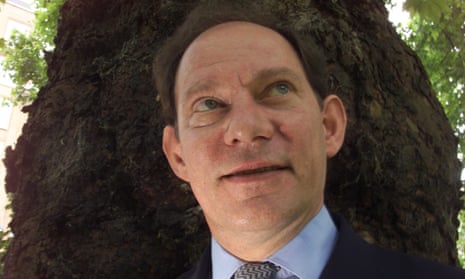A former Conservative MEP leader has condemned the party’s decision to vote with Viktor Orbán in opposing a European Union sanctions process to protect democracy in Hungary, amid growing criticism of the Tory party’s drift to the right.
Edward McMillan-Scott was leader of Conservative MEPs between 1997 and 2001, but clashed with David Cameron over the decision to withdraw from the centre-right European People’s party in 2009. A former European parliament vice-president, he eventually became a Liberal Democrat and argues the Conservative party has moved away from its moderate tradition.
“This is no longer the Conservative party that I belonged to for 25 years,” he told the Guardian. “I was leader of the Tory MEPs for four of those years and tried to fight the hard-right from within. But they are now dominant.”
He said the party was “colluding” with nationalist governments in Poland and Hungary, a decision he traced back to Cameron’s decision to quit the EPP and launch a new Conservative group in the European parliament with controversial allies. “The Tory party, to its shame, has propitiated right from the outset what is the alt-right movement in Europe.”
Conservative sources dismissed McMillan-Scott, who lost the party whip, but similar concerns have been made by Tory moderates.
Julie Girling, an MEP who is suspended from the party over Brexit, said some “sensible people” voted against action on Hungary, because they followed the whips without questioning.
The MEP for the South West of England and Gibraltar, who now sits in the EPP, voted in favour of starting the sanctions procedure.
“The whole hard right of the party has basically seized the agenda,” she said. “In order to be a member of the Brexit club you have to subscribe to all of this hardline rhetoric and to me personally it is not possible to do so … There is no room for discussion any more; either you are with us, or you are our enemy.”
The debate blew up earlier this month when Conservative MEPs voted with Orbán’s Fidesz party against triggering a disciplinary procedure aimed at protecting the rule of law in Hungary. Despite opposition, the vote was carried with a narrow majority, although it is unlikely Hungary will ever face the ultimate sanction, losing EU voting rights.
The Tories have also come under fire for protecting Poland’s Law and Justice (PiS) party, the governing party, also their European parliament allies.
Poland is subject to the EU’s disciplinary procedure, over sweeping changes to the court system that has given the government de-facto control of the judiciary.
At a meeting of EU affairs ministers last Tuesday, France and Germany made a joint statement in protest at the judicial changes, saying Europe needed to stand up for “common values” ahead of European elections in May 2019. Represented by the Brexit minister and former MEP who helped create the Tory-PiS alliance, Lord Callanan, the UK was silent in the debate. “The internal affairs of Poland are a matter for them,” Callanan said.
Conservative insiders are fed up with the deluge of criticism, insisting others have got it wrong, by handing Orbán an easy win that feeds his nationalist narrative. MEPs have overstepped their powers, the MEP Daniel Dalton has said. “Contrary to what our political opponents and some in the media are trying to portray, this in no way signalled approval or support for any of the policies of the Hungarian government.”
“This is not a drift to the right,” said one Conservative source. “It is nothing to do with the direction of the Conservative party. It is solely to do with the best way to tackle Viktor Orbán.”
Ashley Fox, the leader of Britain’s Conservative MEPs, frames the Polish and Hungarian questions as matters of national sovereignty. “How many warnings does the EU’s detached elite need about imposing its views and values on countries with varying cultures, histories and attitudes? Has nothing been learned from Brexit?”he wrote on Conservative Home earlier this year.
But the argument has dismayed MEPs from other parties. “There is no way they would allow silencing of independent media in their own country and it surprises me and disappoints me that they are willing to overlook that in a country like Hungary,” said Judith Sargentini, the Dutch MEP who drafted the report calling for the EU to launch the disciplinary process. “It is simply about Brexit. It is simply about Theresa May needing all the support she can get.”
Sophie in ‘t Veld, a vice-president of the Liberals in the European parliament, told the Guardian in July that Conservative MEPs had trampled on their legacy. Speaking on Friday, she said the Conservative stance on Hungary and Poland was part of a wider pattern seen across European Christian Democrat parties and the US Republicans.
“The dividing lines are now within political parties rather than between them. Some of my Tory colleagues are liberals in my book, some others are not very far removed from [Nigel] Farage.”
The policy of non-interference may have boosted Theresa May’s support on Brexit from Poland and Hungary. But the two countries have minor influence among the EU 27, while EU membership underpins their economies.
“The Polish government is so isolated,” in ‘t Veld said. “If the price would be to break up the internal market, then I think the Polish government is going to stick with the EU27 line.”
At the EU summit in Salzburg, Orbán kissed May’s hand and said he was opposed to “punishing the British”, but did not speak up for the British prime minister during the EU27 Brexit debate.
“He is many things,” in ‘t Veld said, “but he is not stupid.”
